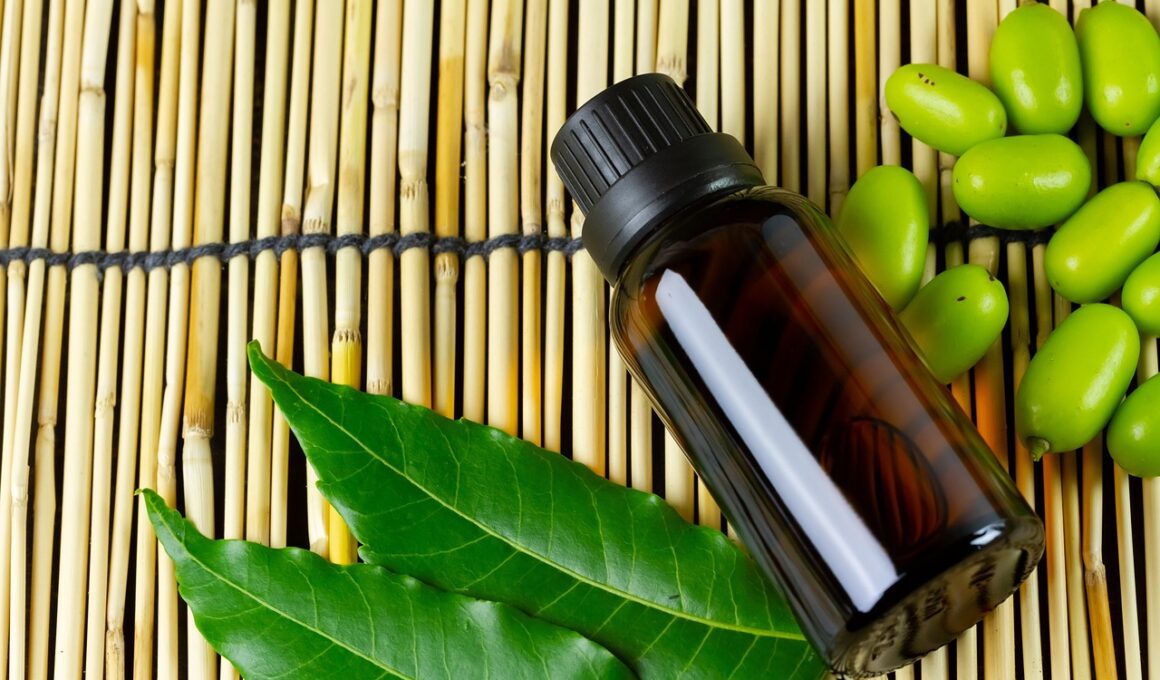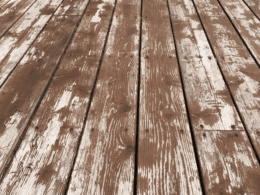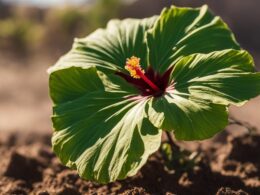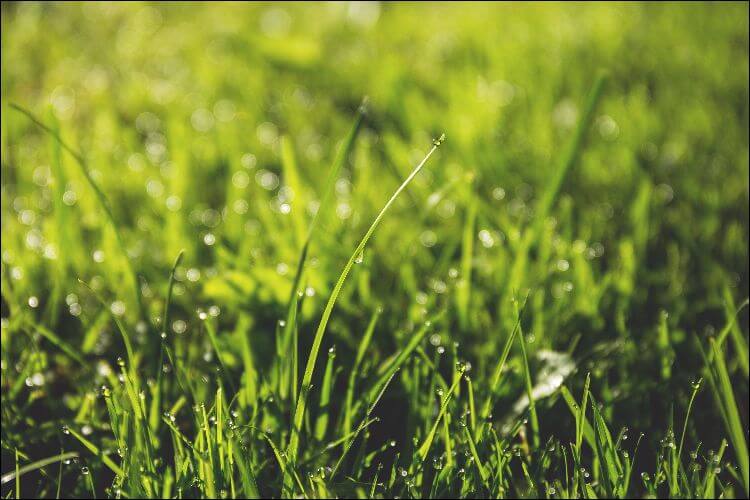Neem oil is a natural insecticide that’s not only effective in keeping those annoying insects at bay, but it’s also safe for you and your precious plants. Say goodbye to harmful chemicals and hello to this amazing alternative.
In this article, we’ll dive into the wonderful world of neem oil and explore its many benefits and uses in the garden. You won’t believe how simple and easy it is to incorporate this powerful product into your gardening routine.
So sit back, relax, and let us guide you toward a safer, bug-free paradise with neem oil.
- Ready to Use - Simply shake and spray directly on your plants both indoors and outdoors
- Cold Pressed Neem Oil - The only RTU on the market formulated using cold pressed neem oil
- Sustainable & Eco Friendly - Comes with a variety of uses to keep your plants looking healthy
The Origins Of Neem Oil
The origins of neem oil are nestled in nature’s nurturing arms.
For centuries, the remarkable properties of this potent potion have been put to use in various ways.
Extracted from the seeds of the Azadirachta indica tree native to India and other parts of Southeast Asia, neem oil has a rich history woven into numerous cultural practices.
Ancient Ayurvedic medicine recognized the power packed within this versatile elixir, utilizing it for treatments ranging from skin ailments to digestive issues.
It wasn’t long before people discovered its effectiveness as an all-natural pest control option for their gardens.
As word spread about its efficacy without causing harm to humans or animals, more gardeners began implementing neem oil in their daily routines.
Today, this eco-friendly alternative continues to gain popularity among those seeking sustainable solutions for protecting plants and produce.
Neem oil’s ability to keep harmful insects at bay while preserving beneficial ones is what sets it apart from harsh chemical pesticides.
So go ahead and give your garden the gift of safety with this natural insecticide that has stood the test of time!
The Science Behind Neem Oil’s Effectiveness
Have you ever wondered how neem oil works so well in keeping those pesky insects away from your plants? The secret lies within its natural ingredients.
Neem oil comes from the seeds of the neem tree, which is native to India and other parts of Asia. This amazing tree has been used for centuries for its medicinal properties, and now we know it also helps protect our gardens too!
One of the main components that make neem oil such a powerful insecticide is azadirachtin. This special compound messes with the hormones of insects, stopping them from growing and reproducing. When bugs come into contact with neem oil, they get all confused and can’t figure out what to do next!
They might stop eating or laying eggs – basically, their whole life cycle gets disrupted. And because this substance only affects insects, it’s safe for us humans and our furry friends.
So there you have it – the science behind why neem oil is an excellent choice for gardeners who want to keep their plants healthy without resorting to harsh chemicals. By using this natural ingredient, not only are you protecting your precious plants but also taking care of yourself and the environment around you.
Give it a try in your garden today and see what a difference it can make!
Safe And Eco-Friendly Pest Control
Now that we’ve explored the science behind neem oil’s effectiveness as a natural insecticide, let’s dive into how it can be used for safe and eco-friendly pest control in your garden. With concerns about traditional chemical-based pesticides causing harm to humans, animals, and the environment, many gardeners are turning to alternatives like neem oil.
This versatile substance offers multiple benefits while ensuring the safety of our ecosystem. One of the most appealing aspects of using neem oil is its ability to target specific pests without harming beneficial insects or plants.
Here are some ways you can use this natural solution for various issues in your garden:
- For insect infestations:
- Mix neem oil with water and spray directly onto affected plants
- Apply during early morning or late afternoon hours when beneficial insects are less active
- To protect against fungal diseases:
- Combine neem oil with water and a mild soap; spray on plant leaves every two weeks
In addition to these practical uses, choosing neem oil over harsh chemicals contributes to a safer and healthier gardening experience overall. Parents can feel secure knowing their children play near treated areas without fear of exposure to dangerous substances. Pet owners won’t have to worry about curious companions ingesting toxic materials from nibbling on sprayed foliage.
Plus, by preserving helpful pollinators such as bees and butterflies, gardens flourish naturally with minimal negative impact on the surrounding ecosystem. So go ahead – make the switch to neem oil for a more responsible approach to maintaining your beautiful outdoor space!
Targeting Common Garden Pests
Identifying Garden Pests: It’s important to know what kind of pest is causing the problem in your garden so you can target it with the right solution.
Natural Neem Oil Solutions: Neem oil is a natural insecticide that can help control common garden pests. It’s safe and effective, and won’t harm beneficial insects.
Controlling Infestations: To control an infestation, you’ll need to use neem oil regularly and make sure you’re treating the entire plant. Repeating treatments over a period of time is often necessary to get the best results.
Identifying Garden Pests
One of the most notorious plant-eaters is the aphid. These tiny insects come in various colors like green, black, or even pink, and tend to gather on leaves’ undersides. They can cause significant damage by sucking sap from your plants, leading to wilted or yellowed leaves.
Another common pest is the caterpillar – while butterflies may be beautiful, their larvae are not so innocent! Look out for chewed leaves (often leaving behind a lacy pattern) and small piles of frass (caterpillar poop).
Slugs and snails also love feasting on tender vegetation at night, so if you see slime trails or ragged holes in leaves, it’s likely that these slimy critters have paid a visit.
In addition to these more obvious culprits, several sneaky pests might require closer inspection. Spider mites, which appear as tiny red or brown dots on foliage, can cause considerable harm by feeding off plant cells. Mealybugs look like little cotton balls hiding along stems and leaf joints – left unchecked; they’ll suck away at your plant until it weakens and dies. And let us not forget scale insects: these odd-looking buggers resemble waxy bumps adhering to stems and branches but are actually living creatures that pierce through bark and feed off tree sap.
By knowing what signs to look for, you’ll be one step ahead in maintaining a healthy garden free from destructive pests.
Natural Neem Oil Solutions
Now that you’ve got the upper hand in identifying those pesky garden invaders, it’s time to fight back and protect your plants.
You don’t have to resort to harsh chemicals – there are natural solutions that can help keep pests at bay while keeping your garden safe for you, your family, and the environment.
One powerful weapon in your gardening arsenal is neem oil. Derived from the seeds of the Neem tree, this organic substance has been used for centuries as a natural pest deterrent and insecticide.
Neem oil works wonders against common garden nuisances like aphids, caterpillars, mites, mealybugs, and even slugs or snails by disrupting their feeding habits and growth cycles.
It’s not only effective but also gentle on beneficial insects like ladybugs and bees who play a crucial role in maintaining a healthy ecosystem within your garden.
To use neem oil effectively, simply mix it with water according to package instructions (usually around 2-5% concentration) and spray it onto affected areas of your plants every couple of weeks until you see an improvement.
Don’t let these unwelcome guests get the better of you – arm yourself with nature’s own defense system!
With some vigilance in spotting signs of infestation and regular application of neem oil solutions when needed, you’ll be well on your way to enjoying a thriving outdoor sanctuary free from harmful pests.
Controlling Infestations
Now that you’ve got a handle on using neem oil to keep those pesky garden pests at bay, let’s talk about controlling infestations.
It’s important to act quickly when you notice signs of trouble in your garden – after all, nothing feels safer than knowing you’re taking charge and keeping your plants healthy. By being proactive, you can stop these unwanted invaders from causing irreversible damage and ensure the well-being of your precious green haven.
To control infestations effectively, first identify which pest is wreaking havoc in your garden. Once you know what you’re dealing with, research their habits, life cycle, and weaknesses so you can come up with an informed battle plan.
Remember to use natural solutions like neem oil whenever possible – they’re not only powerful against common nuisances but also gentle on our environment and beneficial insects that help maintain harmony within our gardens.
So go ahead and take action! With determination and effective strategies in place, your outdoor sanctuary will flourish while remaining a safe space for both plant life and loved ones alike.
Neem Oil As A Fungicide
Neem oil, like a secret weapon hidden in Mother Nature’s garden shed, packs a powerful punch against fungal infections.
This versatile organic product not only serves as an excellent insecticide but also doubles up to protect our precious plants from dreaded diseases caused by fungi.
The dual-action of this superhero makes it indispensable for any gardener seeking refuge from the relentless forces of pests and pathogens.
When applied correctly, neem oil can work wonders in preventing and treating various plant diseases such as powdery mildew, rust, black spot, leaf spot, and even root rot.
Diluting the concentrated neem oil with water and spraying it on susceptible or affected plants forms a protective barrier that stops the spread of these harmful fungi.
It is essential to follow proper mixing instructions and application frequency to ensure maximum efficiency while keeping our gardens safe.
As you continue your journey towards maintaining a healthy garden haven free from damaging insects and menacing molds, remember that incorporating neem oil into your gardening routine could be your best ally.
With its natural origin and minimal adverse effects on both humans and beneficial creatures inhabiting our garden ecosystems, it provides us with peace of mind knowing we have chosen safety alongside effectiveness.
So go ahead, give your plants the care they deserve with nature’s very own guardian – neem oil!
Promoting Plant Health
Promoting plant health is another great advantage of using neem oil in your garden. This natural insecticide not only helps to keep pests away, but it also nourishes and strengthens your plants. Neem oil contains essential nutrients that can improve the overall well-being of your greenery. So by applying this miracle oil, you’re giving your plants a boost they need to grow strong and healthy.
One way neem oil promotes plant health is through its antifungal properties. Fungi such as powdery mildew or black spot can cause considerable damage to your precious plants if left unchecked. By regularly spraying neem oil on your plants’ leaves, you create an environment where fungi cannot thrive. As a result, your plants will be less susceptible to fungal infections, allowing them to flourish without hindrance.
In addition to keeping pesky insects and harmful fungi at bay, neem oil can help reduce stress on plants caused by adverse environmental conditions. When applied during times of drought or high heat, it provides essential moisture retention for the soil surrounding the roots of the plant. This added protection means that even when faced with tough conditions, your plants have a better chance of surviving and thriving.
The use of neem oil ensures that you are providing an extra layer of safety for both yourself and your beloved garden dwellers – contributing to a healthier ecosystem overall!
Application Methods For Neem Oil
In the previous section, we learned how neem oil helps promote plant health. Now let’s dive into effective application methods for this natural insecticide. Properly applying neem oil in your garden will ensure that you can safely and effectively ward off pests while keeping your plants healthy.
There are several ways to apply neem oil in the garden:
- Foliar spray: Mix neem oil with water according to the manufacturer’s instructions, then use a sprayer to coat both sides of leaves. This method is ideal for targeting specific problem areas or treating small infestations.
- Soil drench: Dilute neem oil with water and pour it directly onto the soil around affected plants’ roots. This technique provides long-lasting protection against root-eating insects such as grubs and nematodes.
- Neem cake: Crushed seeds from the Neem tree can be used as an organic fertilizer called ‘neem cake.’ Sprinkle this on top of the soil to deter pests from laying eggs near your plants and enhance soil fertility.
- Seed treatment: Before planting, soak seeds in diluted neem oil solution for a few hours; this prevents fungal infections and preys upon insects from attacking seedlings.
To get optimal results when using any of these application methods, timing is crucial! Apply treatments during early morning or late afternoon hours when temperatures are cooler, which will prevent burning foliage due to heat exposure.
Additionally, remember that some beneficial insects might also be susceptible to neem oil applications – so avoid spraying when bees or other pollinators are present in your garden.
It’s essential not only to understand what benefits come with using neem oil but also how best to utilize it within our gardens by following proper application techniques. The various approaches listed above cater to different needs depending on the pest issue at hand, offering flexibility and options tailored for each unique gardening situation.
With this information in mind, you can confidently introduce neem oil as a natural and safe insecticide into your garden maintenance routine.
Dosage And Frequency Recommendations
An ounce of prevention is worth a pound of cure, and this rings particularly true when it comes to using neem oil in your garden. This natural insecticide can be extremely effective at keeping pests away from your plants, but the key lies in applying the right dosage and frequency to ensure their safety as well. With careful monitoring and adherence to guidelines, you’ll find that your garden will flourish while remaining protected from unwanted insects.
| Plant Type | Neem Oil Concentration |
|---|---|
| Soft-bodied Insects (e.g., aphids) | 0.5% – 1% |
| Hard-bodied Insects (e.g., beetles) | 1% – 2% |
| Fungal Diseases | 0.5% |
In general, start with a lower concentration and gradually increase the strength if necessary. Bear in mind that more isn’t always better – too high a concentration may harm beneficial insects or even damage your plants. As for frequency, apply neem oil every one to two weeks as a preventative measure or every three days when dealing with active infestations until the problem is under control.
So there you have it – by carefully considering the appropriate dosage and application frequency of neem oil, you can effectively protect your precious plants from pesky invaders without causing harm to them or any helpful critters in your garden. Remember, balance is crucial: just like how life thrives harmoniously within nature’s delicate ecosystem, so too should our approach towards maintaining an organic sanctuary where both flora and fauna coexist peacefully.
Safety Precautions And Considerations
Using neem oil in the garden can be a great way to protect your plants from pesky insects. However, it’s important to keep some safety precautions in mind when using this natural insecticide.
First off, make sure you’re wearing gloves when handling neem oil, as it may cause skin irritation for some people. Additionally, if you have any pets or small children that play in the garden, it’s best to keep them away while applying the product.
It’s also essential to use neem oil responsibly by following the instructions on the label carefully. This includes proper dilution of the product and only spraying during specific times of day, like early morning or late evening, when beneficial insects are less active. Doing so will help ensure that neem oil is effective without harming non-target organisms such as bees and butterflies.
Remember, we want our gardens to remain a safe haven not just for us but also for all living creatures. One more thing worth mentioning is storing your neem oil correctly. Keep it in a cool, dry place out of direct sunlight and away from heat sources like radiators or hot pipes. Proper storage will maintain its effectiveness longer and prevent accidental exposure to anyone who might accidentally come into contact with it.
By keeping these safety tips in mind, you’ll enjoy using neem oil as an eco-friendly solution in your garden without putting yourself or others at risk!
Diy Neem Oil Recipes
Now that you know the benefits and uses of neem oil in your garden, it’s time to learn some DIY recipes. Creating your own neem oil solutions can save you money and ensure that you’re using a natural insecticide tailored to your specific needs. Plus, making these concoctions is quite easy!
So let’s dive into how you can make different types of neem oil sprays for various purposes.
- Basic Neem Oil Spray: This simple recipe requires just three ingredients:
- 2 teaspoons of pure cold-pressed neem oil
- 1 teaspoon of mild liquid soap (such as Castile or dishwashing soap)
- 4 cups of water
Mix all the ingredients together in a spray bottle and shake well. Make sure to use this mixture within eight hours, as its potency decreases over time. You can apply this basic spray on your plants every week or two weeks to keep pests at bay while also protecting them from fungal infections.
Want something more powerful? No problem! If you have a severe infestation or need extra protection against stubborn pests like aphids, whiteflies, or spider mites, try our next recipe.
- Stronger Neem Oil Spray: To create a potent solution with added oomph, follow these steps:
- Mix 3 tablespoons of pure cold-pressed neem oil with 1 tablespoon of mild liquid soap.
- Slowly add warm water (about 8 cups) while stirring continuously until everything is combined.
- Pour the mix into a pump sprayer and shake thoroughly before application.
This stronger concentrate should be applied directly onto affected areas once every five days until you see improvement. Then, switch back to the basic formula for maintenance.
So there you have it – two effective DIY recipes that will help protect your garden naturally without harming beneficial insects such as bees and ladybugs. By incorporating these homemade solutions into your gardening routine, you’ll not only save money but also ensure the safety and health of your plants. Go ahead and give neem oil a try; both you and your garden will be grateful!
Alternatives To Neem Oil
Bacillus Thuringiensis is a natural insecticide derived from a bacterium, and is a great alternative to neem oil for pest control.
Pyrethrum is another natural insecticide which comes from a type of chrysanthemum, and is a great option for organic growers.
Spinosad is another popular alternative to neem oil, which is derived from a soil bacterium and is often used for controlling caterpillars and other insect pests.
All three of these alternatives are great for natural pest control, and can be used instead of neem oil to keep your garden healthy.
Let’s discuss the benefits and uses of each of these natural insecticides.
Bacillus Thuringiensis
You might be wondering, what’s another great alternative to neem oil for keeping your garden safe from pesky insects? Well, let me introduce you to Bacillus Thuringiensis, also known as Bt.
It’s a naturally occurring bacteria that works wonders against various types of harmful worms and caterpillars without harming our environment or the beneficial critters in your garden.
Bacillus Thuringiensis may sound like a fancy scientific term, but it’s actually easy to use and very effective.
You simply mix it with water and apply it onto the leaves of your plants where those pests love to munch away.
The best part is that Bt only affects the bad guys – once they ingest it, their stomachs break down and they eventually die off.
Don’t worry though; Bt doesn’t harm humans or other animals, so you can rest assured knowing your loved ones are safe while your garden thrives!
Not only does Bacillus Thuringiensis help keep your plants healthy and insect-free, but using this natural method means fewer chemicals entering our ecosystem.
Less chemical runoff into nearby streams and rivers allows us all to breathe easier knowing we’re doing our part to protect Mother Earth!
So next time you find yourself facing an infestation of unwanted bugs in your garden sanctuary, consider giving Bacillus Thuringiensis a try – not just for its effectiveness but also for its environmental friendliness!
Pyrethrum
Now that we’ve explored the benefits of Bacillus Thuringiensis, let’s dive into another fantastic alternative to neem oil – Pyrethrum.
It’s a natural insecticide derived from chrysanthemum flowers, and it’s been proven to be highly effective in controlling various insects like aphids, spider mites, and whiteflies.
What makes pyrethrum stand out is its rapid action; once those pesky bugs come into contact with it, they’re quickly knocked down and eliminated.
You’ll be happy to know that pyrethrum is considered safe for humans and pets when used as directed. So you can confidently protect your precious garden without worrying about putting your family or furry friends at risk!
Just remember to follow the instructions on the label carefully and avoid spraying directly onto blossoms where beneficial pollinators might visit.
Don’t hesitate to give pyrethrum a try if you’re looking for an eco-friendly solution to keep those annoying insects at bay while ensuring the safety of your loved ones and our environment.
Happy gardening!
Spinosad
As we continue to explore safe and effective alternatives to neem oil, let’s turn our attention to another remarkable option – Spinosad.
This powerful insecticide is derived from a naturally occurring soil bacterium called Saccharopolyspora spinosa, which was discovered in an abandoned rum distillery! Who would have thought that such an amazing solution could be found in the most unexpected of places?
Spinosad has proven its worth by effectively targeting various pests like caterpillars, thrips, and even some types of beetles.
What makes it truly special is how it only affects these troublesome insects without harming beneficial bugs like bees and ladybugs when used correctly.
So you can keep your garden healthy while ensuring the safety of those valuable pollinators we all depend on!
To get the best results with Spinosad, follow the label instructions carefully and apply during early morning or late evening hours when pollinators are less active.
By choosing this eco-friendly alternative, you’ll not only protect your plants but also contribute to a safer environment for everyone.
The Future Of Organic Gardening And Neem Oil
As the world wises up to the wonders of organic gardening, neem oil is swiftly soaring in popularity as a safe and sustainable solution for pest control. Proven powerful against an array of pests, this dynamic deterrent also doubles as a multi-purpose marvel that nourishes plants while it protects them from harm.
Gardeners globally are going green with gratitude for neem oil’s effective yet eco-friendly approach to keeping their gardens thriving. The future of organic gardening seems brighter than ever, with innovations like neem oil leading the charge towards healthier horticulture practices.
With more people becoming aware of the dangers linked to chemical pesticides, there’s no doubt we’ll see even greater growth in demand for natural alternatives. Neem oil not only helps gardeners maintain beautiful landscapes but also contributes to safer environments for humans and wildlife alike – an essential benefit that cannot be overlooked.
Organic enthusiasts can rest assured knowing they’re doing their part in preserving our planet by opting for neem oil as their insecticide choice. Using environmentally responsible products like this one allows us all to make positive impacts on the health of our ecosystem and ourselves.
As awareness continues spreading about these incredible benefits, the use of neem oil will undoubtedly become increasingly commonplace – further solidifying its place as a champion within the realm of organic gardening solutions.
Frequently Asked Questions
Can Neem Oil Be Used To Treat Indoor Plants As Well, Or Is It Only Suitable For Outdoor Gardens?
Absolutely! Neem oil can be used to treat indoor plants as well, making it a versatile and safe solution for both outdoor gardens and your indoor greenery.
This natural insecticide works wonders on houseplants that may be plagued by pests like aphids, spider mites, or mealybugs. Just mix the neem oil with water according to package instructions, then spray it onto your plants’ leaves and stems.
The best part is that you won’t have to worry about harmful chemicals in your home – neem oil is plant-based and non-toxic, so it’s gentle on both your plants and your family’s health.
Keep those pesky bugs at bay while maintaining a healthy indoor environment with this eco-friendly option!
Are There Any Known Negative Effects Of Using Neem Oil On Specific Plant Species Or In Certain Climates?
Surprisingly, neem oil is generally considered safe for most plant species and can be used in various climates without causing significant harm. However, it’s essential to follow the recommended dilution rates and application guidelines to avoid any adverse effects on your plants.
In some cases, neem oil may cause leaf burn or wilting if applied during extreme heat or direct sunlight, so it’s best to apply it early in the morning or late evening when temperatures are cooler.
Additionally, a few sensitive plant species such as ferns and succulents might not tolerate neem oil well; thus, testing on a small area first would be wise before applying it extensively.
Overall, using neem oil with proper care ensures its benefits while keeping your garden flourishing safely!
Can Neem Oil Be Combined With Other Natural Insecticides Or Pest Control Methods For More Effective Results?
Absolutely! Neem oil can be combined with other natural insecticides or pest control methods to achieve even better results in protecting your garden.
By using a mix of strategies, you’ll create a more diverse and effective defense against unwanted pests.
For example, combining neem oil with diatomaceous earth or introducing beneficial insects like ladybugs and lacewings can help keep harmful bugs at bay while still being gentle on the environment.
Just remember to do some research beforehand to ensure that the chosen methods are compatible and safe for both your plants and the surrounding ecosystem.
With these combined efforts, you can enjoy a thriving, healthy garden without worrying about harsh chemicals harming you or the planet.
How Long Does It Typically Take To See Results After Applying Neem Oil To An Infested Area Or Plant?
After applying neem oil to an infested area or plant, you might be wondering how long it’ll take to see some positive results.
Well, the good news is that this natural insecticide typically starts working within 24 hours and continues to provide protection for about two weeks!
In fact, many gardeners report noticing a decrease in pests and healthier plants within just a few days of treatment.
However, keep in mind that for more severe infestations, additional applications may be necessary to fully rid your precious greens of those pesky invaders.
So go ahead and give neem oil a try – your garden will thank you for keeping it safe from harmful insects while still being environmentally friendly!
What Is The Shelf Life Of Neem Oil, And What Is The Best Way To Store It For Long-Term Use?
Neem oil has a shelf life of about two years if stored properly, which means keeping it in a cool, dark place away from direct sunlight and extreme temperatures.
To ensure its effectiveness for long-term use, you can store the neem oil in an air-tight container or bottle to prevent oxidation.
By taking these precautions, you’ll be able to protect your garden from pests safely with this natural insecticide whenever needed!
Conclusion
In conclusion, using neem oil in our gardens and for indoor plants can truly make a difference. Not only does it help us battle pesky insects, but it also allows us to do so naturally and safely.
Remember to be cautious with certain plant species and climates, and don’t hesitate to combine neem oil with other pest control methods.
As we enjoy the benefits of this natural insecticide, let’s ensure that we store it properly for long-term use. Keep an eye on its shelf life and celebrate the positive impact it has on our beloved plants.
Last update on 2024-04-23 at 07:09 / Affiliate links / Images from Amazon Product Advertising API










